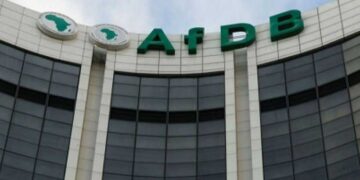Revenue collection for the first two months (July and August) of the financial year have under-performed by Sh40 billion due to the measures that have been put in place to safeguard Kenyans from Coranvirus effects.
This has prompted Kenya for the second time in less than six months to reach out to the International Monetary Fund (IMF) for budget support.
According to IMF resident representative Tobias Rasmussen the government had asked the Brettonwoods institution for another loan following the $739 million (Sh79.3) billion received in May that Kenya sought to help it respond to the economic shocks caused by the pandemic.
The type of credit Kenya has sought from the IMF is a quick-disbursing facility where money flows straight into the budget to top up the public purse and is used at the discretion of the government.
Under the administration of former President Mwai Kibaki, Kenya kept away from this type of credit, with most of the support from institutions like the IMF and the World Bank coming in the form of project support.
The budget support funding is not tied to specific projects and can be used to fund politically important activities.
This comes amid a spike in Covid-19 cases that has seen infections jump 45 percent to 56,601 over the past month and deaths 42 percent to 1, 027.
This could trigger fresh restrictions from the government, risking reducing economic activity and denying the Kenya Revenue Authority (KRA) opportunities to grow tax collection.
The Treasury expects growth of less than 2.5 percent compared to 5.4 percent last year, and international institutions are making lower forecasts.
Tax collections in the three months to September dropped 14.69 percent to Sh317.6 billion, raising fears Kenya’s budget deficit for this financial year could increase due to revenue shortfalls.
The Treasury is September said it was in early talks with the World Bank for the provision of an additional budgetary support loan, which was potentially going to be used in the 2021/22 fiscal year.
The loan will be the third from the World Bank after the Washington-based lender started issuing such financing to Kenya last year.
The Jubilee administration looks set to borrow an average of Sh2.5 billion daily before the end of President Uhuru Kenyatta’s final term in August 2022, highlighting its growing appetite for foreign debt.
Treasury chiefs project in a draft Budget Review and Outlook Paper new loans of Sh1.87 trillion in the two years to June 2020 or Sh2.5 billion daily, pushing Kenya’s debt to Sh8.06 trillion.
Debt Ceiling
If that comes to pass, Mr Kenyatta will have borrowed at least Sh6.1 trillion to implement his manifesto in 10 years in power having inherited slightly more than Sh1.89 trillion in June 2013.
The Jubilee administration has ramped up spending since 2013 to build new roads, a modern railway, bridges and electricity plants, driving up borrowing to plug the budget deficit.
The increased debt has seen Kenya commit more than half of taxes to paying loans, leaving little cash for building roads, affordable housing and revamping of the ailing health sector.
Kenyan Business Feed is the top Kenyan Business Blog. We share news from Kenya and across the region. To contact us with any alert, please email us to [email protected]













































































